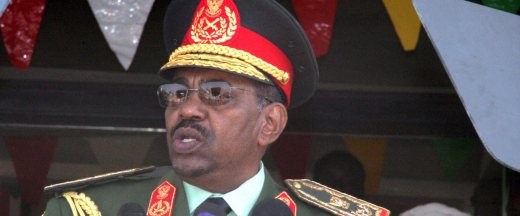The pact signed between Sudan and South Sudan last year is ‘on hold’ as Khartoum mobilizes for war against rebels that it says are backed by Juba.
Emergency meetings of cabinets and ruling party organs have been called in both capitals in response to the new crisis, which comes at the end of a two week deadline for Juba to end its alleged support to the rebels.
A number of contextual factors are important for understanding the new crisis:
– The Sudan Revolutionary Front is a loose coalition of rebel factions battling to overthrow the government in Sudan.
– SRF’s controlling position in the Nuba Mountains allows it to launch surprise attacks in the direction of North Kordofan or White Nile.
– President Omar al-Bashir speaking to a rally on Saturday in Khartoum directed the oil minister to shut down the pipeline to South Sudan and called on youth to join military training camps to prepare for Jihad (holy war).
– The non-armed opposition forces in Khartoum known as the National Consensus forces announced the same day a plan for 100 days of seminars and street protests that it predicted would bring down the regime.
– Technical shut-down of the oil pipeline will not be immediately possible, and Khartoum’s information minister has qualified Bashir’s remarks, saying the decision is reversible.
– Tensions with Juba and the SRF distract attention from domestic political developments including the opposition’s 100-day plan and the internal divisions in the Islamic Movement over constitutional review.
– SRF rebels yesterday attacked Abu Karshola in the northern part of South Kordofan, according to a rebel spokesman, recapturing the town after a well-publicized army effort in recent weeks to reclaim the town in the wake of a May rebel offensive.
– There are unconfirmed reports of an assassination attempt on SRF Chairman Malik Agar in the capital of Uganda, in which a bodyguard was killed.




